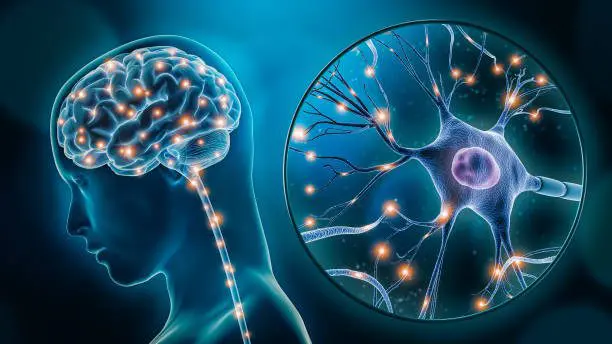My question was this: “What are three things people should know but likely do not?

Here are three things that people should know but might not:
- The Importance of Sleep for Cognitive Functioning: Many people underestimate how crucial sleep is for their brain health. Sleep is essential for memory consolidation, emotional regulation, and cognitive performance. Chronic sleep deprivation can lead to long-term health issues, including an increased risk of Alzheimer’s disease.
- The Dunning-Kruger Effect: This cognitive bias explains why people with low ability in a particular domain often overestimate their competence. Conversely, highly skilled individuals may underestimate their abilities. Understanding this effect can help people be more self-aware and humble in their assessments of their skills and knowledge.
- The Influence of the Gut Microbiome on Mental Health: Recent research suggests that the gut microbiome—the trillions of microorganisms living in the digestive tract—can significantly impact mental health. An imbalance in gut bacteria has been linked to conditions like anxiety, depression, and even neurological disorders. Diet and probiotics can play a role in maintaining a healthy gut microbiome.
While interesting, the first two answers did not surprise me. The third one did, and I asked for more information. Here is what I learned:
The connection between the gut microbiome and mental health is an area of rapidly growing research, often called the “gut-brain axis.” This term describes the complex communication network linking the gut and the brain, which influences both physical and mental well-being.
How the Gut Microbiome Affects Mental Health:

- Gut-Brain Communication:
- The gut and brain communicate through various pathways, including the nervous system (particularly the vagus nerve), the immune system, and the production of neurotransmitters. The gut microbiome can influence these pathways, affecting brain function and mood.
- The vagus nerve acts as a direct line of communication between the gut and the brain, transmitting signals in both directions. Changes in the gut microbiome can affect these signals, influencing mood, stress levels, and cognitive function.
- Production of Neurotransmitters:
- The gut microbiome produces and modulates several critical neurotransmitters for mental health, including serotonin, dopamine, and gamma-aminobutyric acid (GABA). Serotonin, often called the “feel-good” neurotransmitter, is crucial for mood regulation, and about 90% of the body’s serotonin is produced in the gut.
- An imbalance in gut bacteria can lead to disruptions in neurotransmitter production, which may contribute to conditions like depression, anxiety, and even bipolar disorder.
- Inflammation and Immune Response:
- The gut microbiome plays a crucial role in regulating the immune system. An unhealthy gut can lead to chronic inflammation, which has been linked to various mental health disorders, including depression.
- Chronic inflammation can lead to a state of “sickness behavior,” characterized by fatigue, withdrawal, and an overall decrease in cognitive function, which mirrors symptoms of depression.
- Impact on Stress and Anxiety:
- Stress can alter the gut microbiome, and these changes can, in turn, exacerbate stress and anxiety. This creates a vicious cycle where stress and an unhealthy gut feed into each other.
- Certain probiotics, known as “psychobiotics,” have been shown to reduce symptoms of stress and anxiety by restoring balance to the gut microbiome.
Ways to Support a Healthy Gut for Better Mental Health:
- Diet:

- Eating a fiber-rich diet, fruits, vegetables, and fermented foods can promote a diverse and healthy gut microbiome. Fiber is a key source of nourishment for beneficial gut bacteria, while fermented foods like yogurt, kefir, sauerkraut, and kimchi provide probiotics that can enhance gut health.
- Probiotics and Prebiotics:
- Probiotics are live bacteria that can help replenish the gut with beneficial microorganisms. Prebiotics, on the other hand, are fibers that feed and support the growth of these beneficial bacteria. Both are important for maintaining a healthy gut microbiome.
- Stress Management:

- Managing stress through meditation, exercise, and adequate sleep can help maintain a healthy gut-brain axis. High stress levels can negatively impact the gut microbiome, so finding ways to reduce stress is crucial.
- Avoiding Antibiotic Overuse:
- While antibiotics are sometimes necessary, overuse can disrupt the gut microbiome by killing harmful and beneficial bacteria. It’s important to use antibiotics only when prescribed by a healthcare professional and to follow their dosage guidelines.
The gut-brain axis is a fascinating and complex area of study. Research is continually revealing more about how intimately our gut health is tied to our mental well-being. Be well, and prosper.

Welcome to 3-Minutes A Day University, where you can learn a little about a lot of things every day in three minutes or less. We help you expand your knowledge and understanding of the real world, and 3-MAD University is tuition-free. Our wide-ranging syllabus includes a fascinating insight into topics including Health and Medicine, Science, Sports, Geography, History, Culinary Arts, Finance and the Economy, Music and Entertainment, and dozens more. You will impress yourself, your friends, and your family with how easy it is to learn facts and perspectives about the world around you. One topic you will never find covered is politics. We hope you enjoyed the previous three minutes. If you liked this post, please pass it along to a friend.
Was this email forwarded to you? Subscribe Here.
© Copyright 2024. 3-Minutes A Day University All Rights Reserved. Unsubscribe


Carol
Pass the sauerkraut, please. I loved this article.